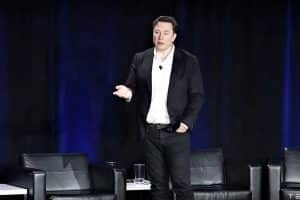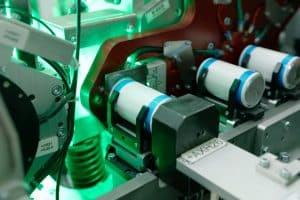Tesla and other companies selling vehicles directly to consumers are under threat in Florida, where two bills may disrupt how the automakers sell their vehicles.
Tesla has become intimately familiar with the laws surrounding dealerships and auto sales throughout the United States, often putting the American upstart at odds with local government and dealerships alike. Now, Tesla is again facing threats from legislatures as two new bills could derail the company’s sales system in Florida.
Currently, there are no restrictions on direct-to-consumer sales in Florida. According to the National Conference of State Legislatures, Florida Statute 320.645, “manufacturers may engage in direct-sales of motor vehicles provided there are no franchised dealerships selling such vehicles within the state.”
However, this could change.
As initially reported by Seeking Rents, Florida House Bill 637, sponsored by Rep. Jason Shoaf, and Florida Senate Bill 712, sponsored by Sen. Bryan Avila, are set to prohibit automakers from selling vehicles direct to consumer, preventing automakers from reserving vehicles for customers, and restricting automakers from incentivizing or forcing dealers to sell certain types of vehicles, including EVs.
Neither Bill has made its way to voting, and both have received substantial amounts of editing thus far, but as it stands, the current abstracts for the bills are listed below:
HB637: “Prohibits manufacturer, distributor, or importer from certain actions in allocation or distribution to franchised motor vehicle dealers; authorizes sale or activation of accessories or features through remote electronic transmission; revises provisions prohibiting manufacturer, distributor, or importer from owning, operating, or controlling motor vehicle dealership; authorizes application for injunction; authorizes motor vehicle dealer association to seek declaration & adjudication of rights with respect to certain violations.”
SB712: “Motor Vehicle Sales; Prohibiting applicants and licensees from reserving a certain motor vehicle for a specifically named person; prohibiting applicants and licensees from requiring or incentivizing motor vehicle dealers to sell or lease particular motor vehicles to specifically named persons or at specific prices or profit margins; prohibiting applicants and licensees from engaging in certain activities of motor vehicle dealers; authorizing specified entities without independent franchised dealers in this state to own, operate, or control a motor vehicle dealership in this state, etc.”
According to the lobbyists listed in association with the Bill on the Florida State Legislature website, both bills have received sizable backing from dealers and dealership groups, including the AutoNation dealership chain, the Florida Association of Automotive Dealers, and the South Florida Association of Automotive Dealers.
Neither state representative was immediately available for comment to Teslarati on the upcoming bills.
It is essential to recognize that Tesla would not be the only automaker affected by these bills. As seen in the second section of SB712, the Bill would prohibit “applicants and licensees” from requiring or incentivizing the sales of electric vehicles, which is precisely what brands like Ford, Hyundai, and General Motors have been doing nationally.
Furthermore, the Bill would prohibit automakers from intervening in the pricing of their vehicles, allowing dealers to dramatically mark up vehicles, a problem that has plagued numerous legacy automakers.
Considering how early in the lifecycle of both these bills are, there is a good chance they look very different by the time they reach the voting stage. However, with both of these bills up for voting in the coming weeks or months, there is no doubt that Tesla may face new legal pressure in the State of Florida if it hopes to continue to sell directly to customers.





